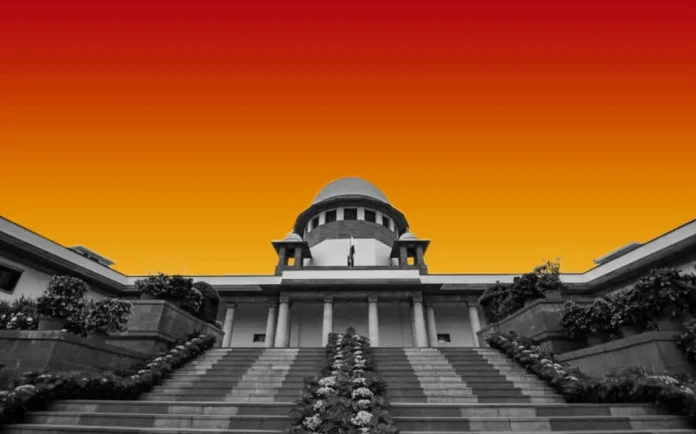The Supreme Court on Tuesday said that while it did not see any harm in the country using a spyware for its security, allegations of the same being used against private individuals would be looked into.
Noting that the security of the nation could neither be compromised nor sacrificed, the Bench of Justice Surya Kant and Justice N Kotiswar Singh said there was nothing wrong in the country using spyware against adverse elements.
The Apex Court, however, said that private civil individuals had the right to privacy, which would be protected under the Constitution. Their apprehensions regarding such allegations would always be looked into and addressed properly.
When a lawyer submitted that nothing was stopping the State from using the spyware if it had been purchased, the Bench, referring to the ongoing security situation in the country, said that one must be careful in these times.
It further refused to make public the expert committee report on the alleged misuse of spyware on the grounds that any report touching the sovereignty and security of the country could not be made a document for discussion on the streets.
The top court of the country made these observations while hearing a batch of petitions alleging the use of Pegasus spyware by the Government of India to spy on journalists, activists, judges, and others.
The petitioners sought a probe into the allegations that Pegasus spyware was used by the Indian government to snoop on individuals by infecting their electronic devices, such as mobile phones.
Israel-based spyware firm NSO claimed that it sold its Pegasus spyware only to ‘vetted governments’ and not to private entities. The company, however, refused to reveal which governments it sold the controversial product to.
An international consortium of news outlets, including Indian news portal The Wire, had released a series of reports in 2021, indicating that the software may have been used to infect the mobile devices of several persons, including Indian activists, journalists, lawyers, a former Supreme Court judge, officials, and others.
The reports referred to a list of phone numbers selected as potential targets. Upon analysis by a team from Amnesty International, some of these were found to have traces of a successful Pegasus infection, while some showed attempted infection, added the reports.
Following the release of these reports, several individuals and organisations filed petitions in the Apex Court. The petitioners included Rajya Sabha MP John Brittas, Advocate ML Sharma, founder of Asianet Sashi Kumar, and Director of Hindu Group of publications N Ram. The Editors Guild of India, along with journalists Ipsa Shatakshi, Rupesh Kumar Singh, Paranjoy Guha Thakurta, Prem Shankar Jha and SNM Abidi also filed pleas before the Apex Court.
The top court of the country constituted a three-member expert committee, headed by former Supreme Court judge, Justice RV Raveendran, to probe the case.
The committee submitted its report to the Court in July 2022, stating that the spyware was not found in 29 mobile phones examined by it. The report further said that some malware was found in five out of 29 devices, however, it was not Pegasus. The committee further said that the Government of India did not assist the committee in its task.
Senior Advocate Kapil Sibal, appearing for the petitioners, today apprised the Bench that WhatsApp had accepted before a US district court that such hacking did take place. He said now there was evidence of court and of WhatsApp.
The Senior Counsel demanded that at least a redacted report of the Committee could be supplied to the petitioners.
The Bench remarked that it looked an objective question answer sessions, wherein the lawyer may ask whether he was there or not and the Court could answer in either yes or no.
Stressing on the seriousness of the case, Senior Advocate Shyam Divan said that State has used a spyware against its own citizenry, which was worse than anything.
The Bench remarked at this stage, they were only allegations.
Divan replied that there was substantial proof to state that Pegasus was used against journalists and judges.
Solicitor General Tushar Mehta intervened by stating that such submissions were being made with some other intention.
Senior Advocate Divan contended that the entire report must be made available since the judicial system in India was an open court system.
Noting that any report touching the sovereignty and security of the country would not be disclosed, the Bench said individuals wanting to know whether they were included in the same, could be informed.
The Apex Court has listed the matter for further hearing on July 30.


